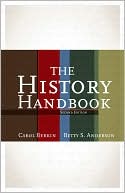Category Books
- Fiction Books & Literature
- Graphic Novels
- Horror
- Mystery & Crime
- Poetry
- Romance Books
- Science Fiction & Fantasy
- Thrillers
- Westerns
- Ages 0-2
- Ages 3-5
- Ages 6-8
- Ages 9-12
- Teens
- Children's Books
- African Americans
- Antiques & Collectibles
- Art, Architecture & Photography
- Bibles & Bible Studies
- Biography
- Business Books
- Christianity
- Computer Books & Technology Books
- Cookbooks, Food & Wine
- Crafts & Hobbies Books
- Education & Teaching
- Engineering
- Entertainment
- Foreign Languages
- Game Books
- Gay & Lesbian
- Health Books, Diet & Fitness Books
- History
- Home & Garden
- Humor Books
- Judaism & Judaica
- Law
- Medical Books
- New Age & Spirituality
- Nonfiction
- Parenting & Family
- Pets
- Philosophy
- Political Books & Current Events Books
- Psychology & Psychotherapy
- Reference
- Religion Books
- Science & Nature
- Self Improvement
- Sex & Relationships
- Social Sciences
- Sports & Adventure
- Study Guides & Test Prep
- Travel
- True Crime
- Weddings
- Women's Studies
The History Handbook »

Authors: Carol Berkin, Betty S. Anderson
ISBN-13: 9780495906766, ISBN-10: 049590676X
Format: Other Format
Publisher: Cengage Learning
Date Published: January 2011
Edition: (Non-applicable)
Author Biography: Carol Berkin
Born in Mobile, Alabama, Carol Berkin received her undergraduate degree from Barnard College and her Ph.D. from Columbia University. Her dissertation won the Bancroft Award. She is now presidential professor of history at Baruch College and the Graduate Center of City University of New York. She has written JONATHAN SEWALL: ODYSSEY OF AN AMERICAN LOYALIST (1974); FIRST GENERATIONS: WOMEN IN COLONIAL AMERICA (l996); A BRILLIANT SOLUTION: INVENTING THE AMERICAN CONSTITUTION (2002); and REVOLUTIONARY MOTHERS: WOMEN IN THE STRUGGLE FOR AMERICA'S INDEPENDENCE (2005). She has edited WOMEN OF AMERICA: A HISTORY (with Mary Beth Norton, 1979); WOMEN, WAR AND REVOLUTION (with Clara M. Lovett, 1980); WOMEN'S VOICES, WOMEN'S LIVES: DOCUMENTS IN EARLY AMERICAN HISTORY (with Leslie Horowitz, 1998); and LOOKING FORWARD/LOOKING BACK: A WOMEN'S STUDIES READER (with Judith Pinch and Carole Appel, 2005). She was contributing editor on southern women for THE ENCYCLOPEDIA OF SOUTHERN CULTURE and has appeared in the PBS series 'Liberty! The American Revolution; Ben Franklin; and Alexander Hamilton' and The History Channel's ?Founding Fathers.? Professor Berkin chaired the Dunning Beveridge Prize Committee for the American Historical Association, the Columbia University Seminar in Early American History, and the Taylor Prize Committee of the Southern Association of Women Historians. She served on the program committees for both the Society for the History of the Early American Republic and the Organization of American Historians. She has served on the Planning Committee for the U.S. Department of Education's National Assessment of Educational Progress, and she chaired the CLEP Committee for Educational Testing Service. She serves on the Board of Trustees of The Gilder Lehrman Institute of American History and The National Council for History Education.
Betty Anderson received her Ph.D. in Near Eastern history from the University of California'Los Angeles in 1997. She is Associate Professor of history at Boston University, where she teaches Middle East and world history. Her current research focuses on the development of political parties and national identity in Jordan and the Fertile Crescent. She is the author of NATIONALIST VOICES IN JORDAN: THE STREET AND THE STATE (2005). Anderson's publications include many articles in academic journals and a chapter for Social Identities, Development Policies, and the State of Jordan, 1946-1996.
Book Synopsis
As with every area of study, success in a history course involves learning the tricks of the trade. THE HISTORY HANDBOOK is a no-nonsense guide to the skills you need to succeed. The authors offer practical information on how to read primary sources, research historical topics, correctly cite sources, and more. THE HISTORY HANDBOOK also offers tips for Internet research and evaluating online sources.
Table of Contents
Preface. 1. How Can I Succeed in My History Class? 2. There's So Much Weekly Reading Assigned for Class...How Can I Ever Do It All? 3. How Do I Study for History Tests? 4. How Can Maps Help Me Understand History? 5. How Can I Work Effectively with Primary, Secondary, and Fictional Sources in My History Class? 6. How Do I Manage Written Assignments? 7. How Do I Pick a Research Topic and Find Information for It? 8. How Do I Write a Research Paper? 9. How Do I Join Class Presentation Assignments and Debates Successfully? 10. What Is Plagiarism and When Would I Be Cheating on My Paper? 11. What Information Do I Have to Cite? 12. This Isn't English Class, So Why Do I Have to Correct My Grammar? 13. How Do I Make Computer Technology Work for Me? How Do I Succeed in an Online Class? 14. Are There Any Other Tips I Should Know? Glossary. Index.
Subjects
 Reference & Textbooks
Reference & Textbooks  Historiography
HistoriographyHistory
 Reference & Textbooks
Reference & Textbooks  Study & Teaching
Study & TeachingNonfiction
 History
History  Reference & Textbooks
Reference & Textbooks
